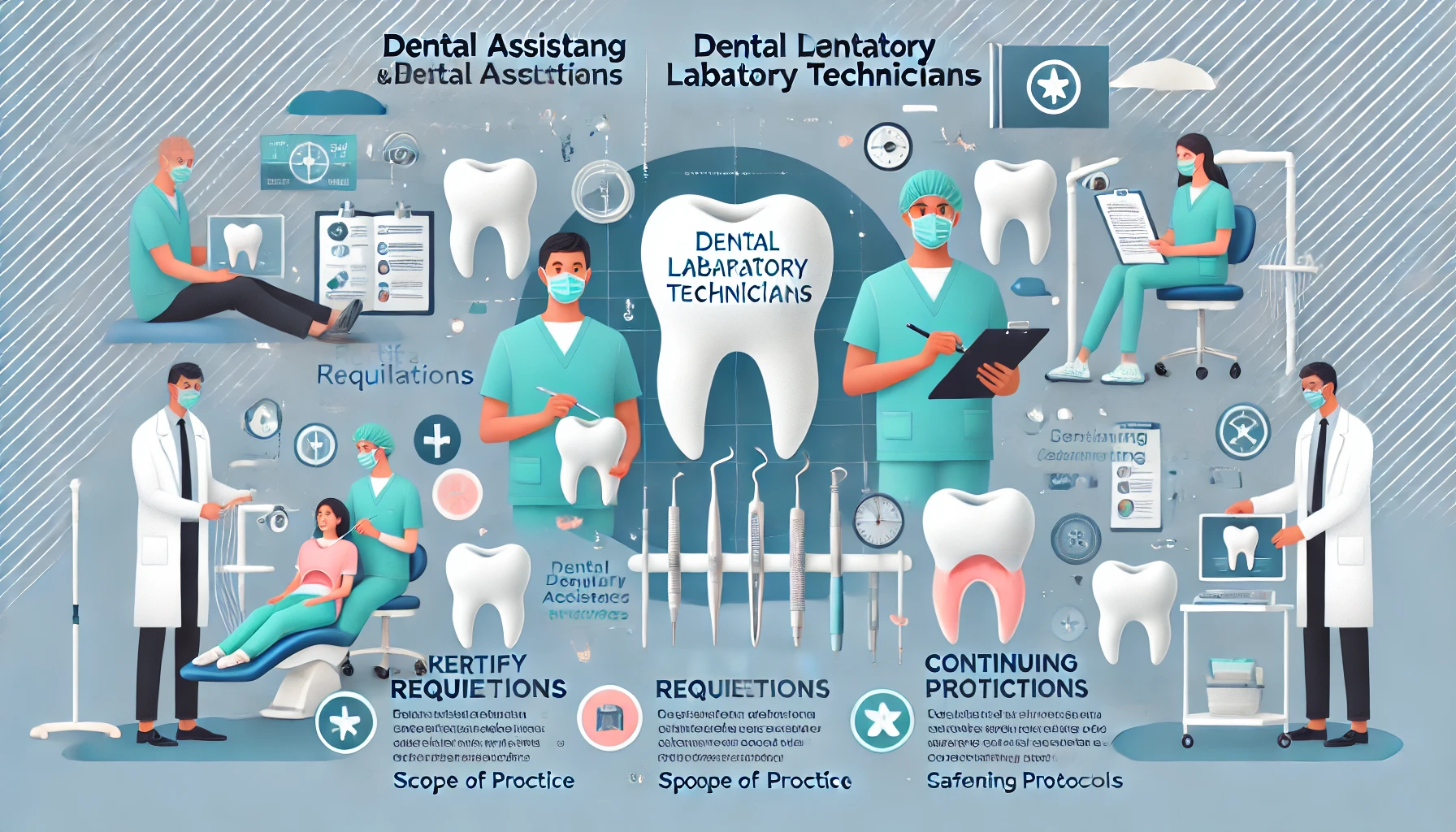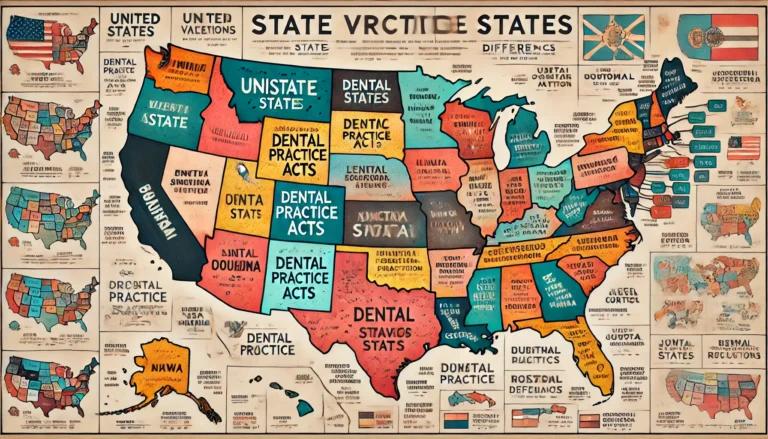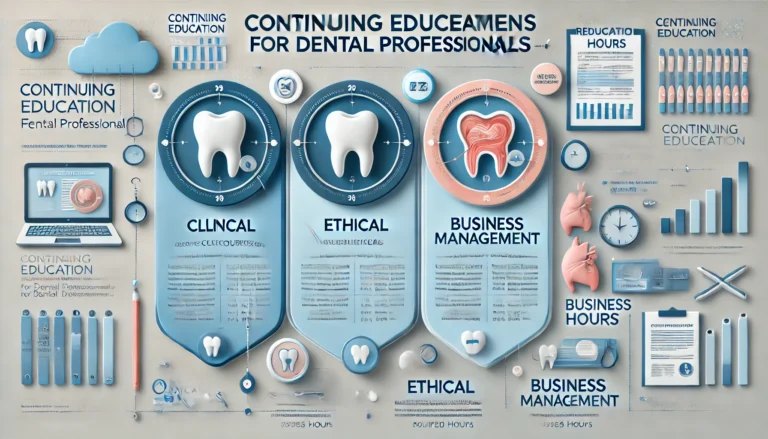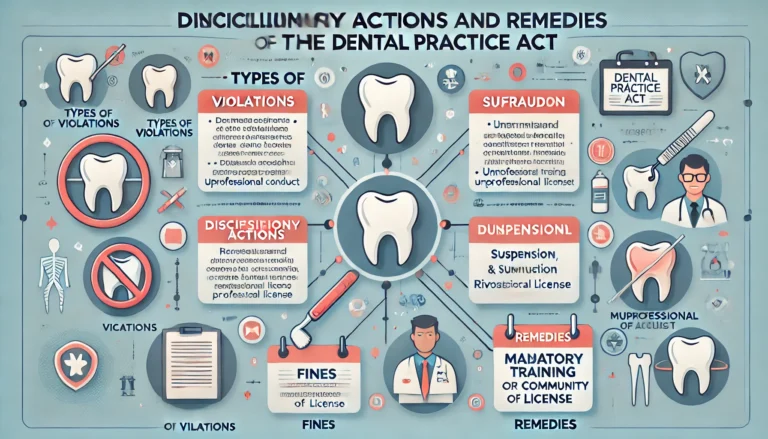Regulations for Dental Assisting and Dental Laboratory Technicians
Regulations for Dental Assisting
The dental field is intricate and multifaceted, encompassing various roles that ensure the smooth functioning of dental practices and the provision of high-quality care to patients. Among these crucial roles are Dental Assistants and Dental Laboratory Technicians. Understanding the regulations governing these professions is essential for maintaining standards and ensuring patient safety. This article delves into the regulatory frameworks, certification requirements, and professional standards that guide dental assisting and dental laboratory technicians.
Understanding the Role of Dental Assistants
Dental assistants play a pivotal role in dental practices, offering support to dentists and ensuring that procedures run smoothly. Their responsibilities can range from preparing treatment rooms and sterilizing instruments to assisting during dental procedures and taking patient X-rays. Given the hands-on nature of their work, stringent regulations govern their training and certification.
Critical Regulations for Dental Assistants
- Educational Requirements: Most states require dental assistants to complete an accredited dental assisting program, which typically lasts between nine months to two years. These programs cover essential topics such as dental anatomy, radiology, and infection control.
- Certification and Licensure: In many states, dental assistants must pass the Certified Dental Assistant (CDA) exam administered by the Dental Assisting National Board (DANB). Additionally, some states require a state-specific exam or additional certifications for specific tasks, such as radiography.
- Continuing Education: To maintain certification, dental assistants must complete continuing education (CE) courses. These courses keep assistants updated on the latest advancements in dental care and regulatory changes.
- Scope of Practice: Regulations define the specific tasks that dental assistants are permitted to perform. While some states allow dental assistants to perform expanded functions like coronal polishing and fluoride application, others have more restrictive scopes of practice.
Role and Regulations for Dental Laboratory Technicians
Dental laboratory technicians are the artisans of the dental world, crafting prostheses like crowns, bridges, and dentures that are crucial for restoring patients’ oral health. The precision and skill required in this profession demand a rigorous regulatory framework to ensure high standards.
Key Regulations for Dental Laboratory Technicians
- Educational Requirements: While some dental laboratory technicians learn on the job, formal education is increasingly preferred. Programs typically offer an associate degree in dental laboratory technology, covering subjects like dental materials, morphology, and laboratory techniques.
- Certification: Although certification is voluntary, many employers prefer or require the Certified Dental Technician (CDT) credential. This certification, provided by the National Board for Certification in Dental Laboratory Technology (NBC), involves passing a comprehensive exam and demonstrating practical skills in one of the specialty areas like crowns and bridges, ceramics, or dentures.
- Laboratory Standards: Dental laboratories must comply with regulatory standards that govern the materials used and the processes followed. The Occupational Safety and Health Administration (OSHA) and the Food and Drug Administration (FDA) set guidelines to ensure safety and quality.
- Continuing Education: Like dental assistants, dental laboratory technicians must engage in continuing education to stay current with technological advancements and regulatory updates.
In the ever-evolving field of dentistry, understanding the regulations for dental assisting and dental laboratory technicians is paramount. Both roles require stringent certification and adherence to educational standards to ensure patient safety and high-quality care. For dental assistants, this includes passing the Certified Dental Assistant (CDA) exam and engaging in ongoing continuing education. Dental laboratory technicians, on the other hand, often seek the Certified Dental Technician (CDT) credential and must comply with strict laboratory standards set by OSHA and the FDA. Staying informed about these regulatory frameworks helps professionals maintain excellence and meet the demands of modern dental practices.
Informative List of Key Regulatory Bodies and Certifications
- Dental Assisting National Board (DANB): Administers the Certified Dental Assistant (CDA) exam.
- National Board for Certification in Dental Laboratory Technology (NBC): Offers the Certified Dental Technician (CDT) credential.
- Occupational Safety and Health Administration (OSHA): Sets safety standards for dental practices and laboratories.
- Food and Drug Administration (FDA): Regulates the materials and processes used in dental laboratories.
- American Dental Association (ADA): Provides guidelines and accreditation for educational programs in dental assisting and dental laboratory technology.
Examples and Tips for Better Understanding
- Example of Certification Process for Dental Assistants: Maria, a dental assistant, completed a one-year accredited program and passed the CDA exam. She must renew her certification every year, requiring 12 continuing education credits annually.
- Example of Laboratory Technician Training: John, a dental laboratory technician, pursued an associate degree in dental laboratory technology. After two years of study, he chose to specialize in ceramics and obtained his CDT certification.
- Tip for Staying Current: Join professional organizations such as the American Dental Assistants Association (ADAA) or the National Association of Dental Laboratories (NADL) for access to the latest industry updates and continuing education opportunities.
Engaging Insights into the Future of Dental Regulations
The dental field is continuously evolving, with new technologies and techniques emerging regularly. Regulations must adapt to these changes to ensure that dental professionals are well-equipped to provide safe and effective care.
For instance, advancements in digital dentistry, such as 3D printing and CAD/CAM technology, are revolutionizing dental laboratories. As these technologies become more widespread, regulatory bodies may introduce new standards for training and certification to ensure proficiency.
Similarly, the increasing emphasis on infection control, particularly in light of recent global health concerns, underscores the importance of stringent regulatory standards for dental assistants. Enhanced protocols for sterilization and the use of personal protective equipment (PPE) are likely to become permanent fixtures in dental practice regulations.
By staying informed and engaging in continuous learning, dental assistants and dental laboratory technicians can not only comply with existing regulations but also anticipate and adapt to future changes. This proactive approach ensures that they continue to provide the highest standard of care in a dynamic and ever-changing field.
Conclusion
Understanding the regulations for dental assisting and dental laboratory technicians is crucial for anyone pursuing a career in these fields. The rigorous educational requirements, certification processes, and continuing education obligations ensure that these professionals are well-prepared to meet the demands of their roles. By adhering to these standards, dental assistants and dental laboratory technicians play a vital part in delivering exceptional dental care and maintaining patient safety.
Whether you are a current dental professional or considering entering the field, staying abreast of regulatory changes and advancements in dental technology is essential. Embrace the opportunities for growth and learning that come with this dynamic profession, and you will be well-equipped to thrive in the ever-evolving world of dentistry.




